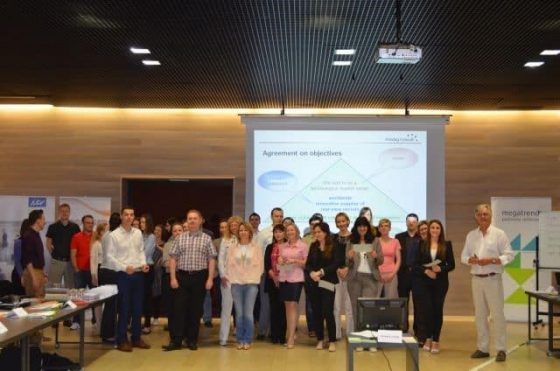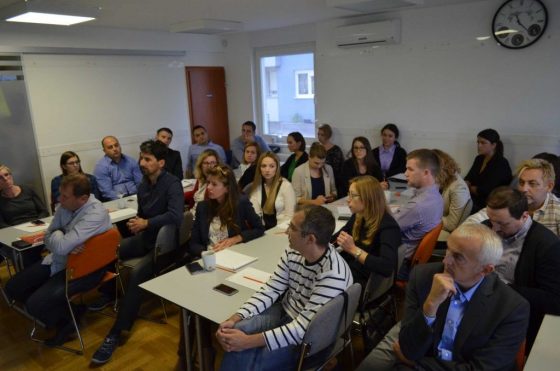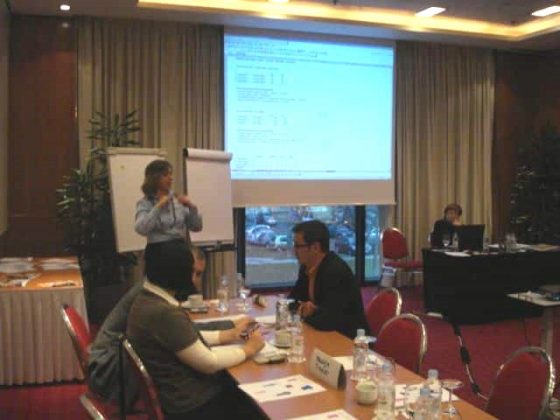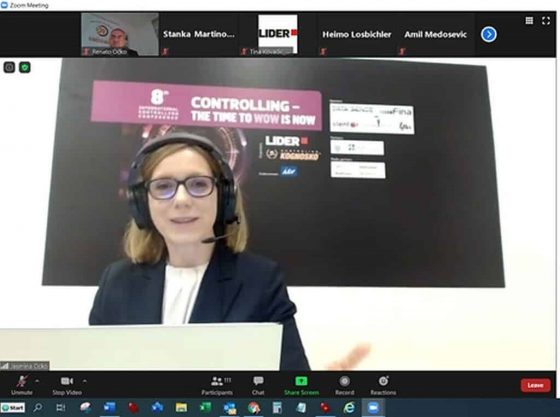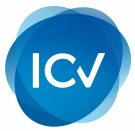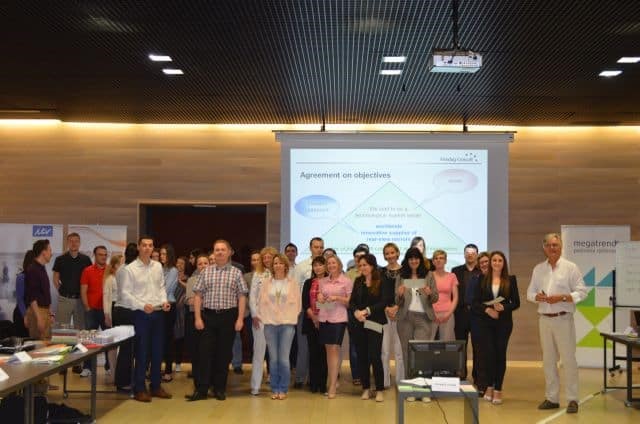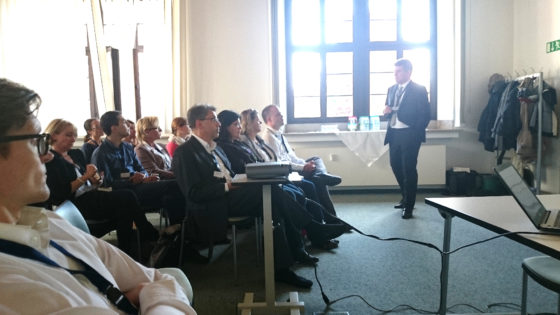It’s been ten years since the first meeting of the work group Croatia I – congratulations to the WG leader and all members!
On this occasion, Jasmina Očko, consultant for controlling at Kontroling Kognosko and work group leader Croatia I answered some questions about the past and the future.
The ICV in Croatia is ten years old. Do you still remember the first workgroup meeting? How did it all start?
Of course, I remember! We were very excited. We started something completely new, but we firmly believed it would be a great adventure. There were no such associations or groups in Croatia, although we had many controllers at that time. We can say that this was the beginning of great networking that is developing continuously to this day. Considering that the first training center for controllers in Croatia was set in our company in those years, ICV has had its natural habitat.
Why did you decide to coordinate ICV in Croatia, and what does this role give you?
I have been involved in controlling my entire professional career. For the first ten years, I worked as a controller in a large international company. In 2005, I founded the company Kognosko (today called Kontroling Kognosko d.o.o.) for consulting and education in controlling.Lifelong learning was my commitment. While attendingthe CA Controller Akademie in Munich, I was introducedto the benefits provided by the ICV, and realized that itoffers excellent opportunities for anyone involved incontrolling. For that reason, I presented the ICV to myfellow controllers and managers in Croatia.
My involvement in the ICV has helped me make the story about what controlling is and how to implement it properly touch everyone interested in it. It is excellent that there is a lot of literature, publications, conferences, education, and accumulated knowledge to maintain a high level of professionalism. Otherwise, everyone could invent their own version of what controlling really is – which, unfortunately, I still often see in our practice.
How has the WG Croatia I changed for these ten years?
About 300 controllers, managers, accountants, financiers, IT specialists, business owners passed through our work group. Some come, some leave, but we have between 80 and 100 regular members all the time. But the principle of our work is the same – every year we arrange the dates of the workshops in advance, and together we choose the topics we want to deal with.
From the 32 workshops held so far, the most topics were processed and prepared by the members themselves, and they directly transferred their experiences to others. But sometimes we invite experts from specific fields for which we do not have our knowledge. This is especially true for transfer pricing, IFRS, consolidation, taxes or communication skills, and psychology. We also had the opportunity to host foreign guests – such as Dietmar Pascher or Herwig Friedag. Since many of our members also attended the Controller Akademie, it is easy for us to communicate; we have a common language. We are a very homogeneous team of controlling enthusiasts.
And how has Croatian controlling changed?
I can say – a lot. There are several reasons for this. Many companies are experiencing the transfer of management to young successors who do not have much experience and rely much more on quality information. Another reason is the new era of digitalization, which does not exist without controlling. The third reason is that obtaining financial resources from EU funds or banks is no longer possible without proof of the system’s orderliness, and this is again impossible without controlling.
And of course, a new significant shift in the development of controlling was brought by the Covid 19 pandemic. In general, every crisis in our country is a big push for more intensive dealing with the development of controlling.
What can you say about the pandemic changing the business in Croatia? Has the controller’s role changed?
In good times, managers often ignore early warnings from controlling. Today, that is no longer the case.
On the contrary, controlling is now in the spotlight. But on the other hand, this is a big test for controllers – now is the time to show what they can and do know. Companies that have invested in the knowledge and development of controlling are now at a huge advantage.
You follow ICV news from other countries – in your opinion, what are the differences between e.g. German or Swiss and Croatian controlling?
Controlling is controlling, but this comparison is almost impossible because the context and duration in which controlling develops in mentioned countries are significantly different. It is only essential to emphasize that the number of controllers in Croatia will continue to grow rapidly for a long time to come. We rightly consider it one of the most attractive jobs of the future.
2020 brought some challenges for the ICV Croatia also including a new form of the Congress. How did you manage it?
Thanks to the Zoom and Teams platform, we did not miss a single ICV workshop, and our ICCC International Controlling Conference in Croatia experienced some news – we went for two days for the first time, we had 15 lecturers and participants from all over Europe and beyond. It was a completely new situation from which we emerged enriched by a unique experience. But I’m sure – the next time we all meet in live, it will be a truly wonderful day.
How do you see ICV Croatia in the next ten years?
I believe that, in general, specific professional associations will intensify even more. I would like the different ICV work groups to be more connected, which can now be done very easily. Maybe the current form of workshops will change, the topics we will deal with will turn to new ones related to digitalization, data analytics, etc. This will attract the younger generation to our work group.
But I am sure that learning and sharing new knowledge and skills will be more important than ever. Therefore, the best years for the ICV are probably yet to come.
More about the ICV Croatia I: https://www.icv-controlling.com/de/arbeitskreise/croatia-i.html
